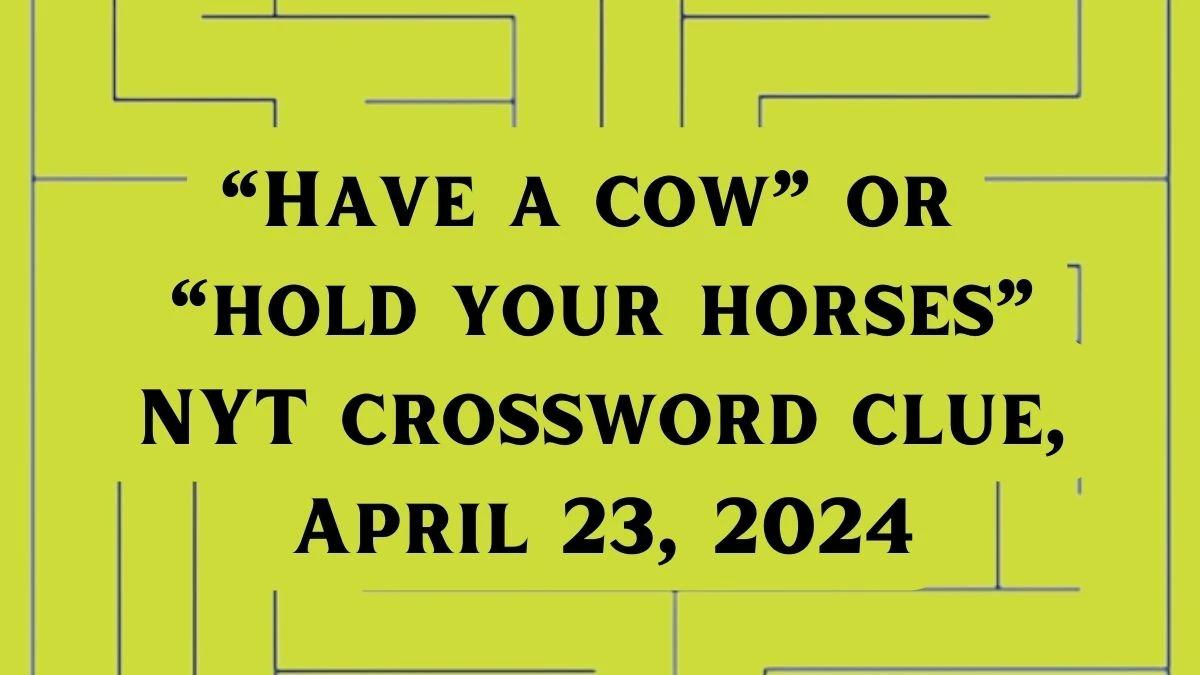“Have a cow” or “hold your horses” NYT crossword clue, April 23, 2024
by
Updated Apr 23, 2024

The New York Times crossword is a puzzle game published daily in The New York Times and available on their website, in other newspapers, and on mobile apps. Solving these crossword puzzles can help improve mental functions.
Studies have also found that solving crossword puzzles regularly can boost your focus on tasks and enhance your working memory and decision-making abilities.
Some clues are easy, and you can solve them yourself, but some are hard, and you need to search the internet or negative websites that explain each crossword clue answer. That's why we are here. Let's look at today's clue.
Clue
Before guessing an answer, you need to first understand the given clue and its definition. Split the given clue and know its synonyms and definitions.
Sometimes you get direct clues, and sometimes you may not get a direct clue for your answer. If you are stuck on this clue in a crossword puzzle, we can help you find the answer.
Today's NYT crossword clue is “Have a cow” or “hold your horses”
- “Have a cow” refers to being very worried, upset, or angry about something.
- "Hold your horses" or "Hold the horses" is a saying in English that means "wait" or "slow down." It's like telling someone to pause or take things more slowly.
These two phrases “Have a cow” or “hold your horses” refer to different meanings. These types of phrases in English are an expression that holds a different meaning to their literal meaning.
Hints
- The answer is a five-letter word.
- Used to add variety in speech or writing.
- It is a formulaic language.
Answer
IDIOM.
Explanation
The phrase "Hold your horses" is an idiom because it doesn't mean exactly what the words say individually. Instead of talking about real horses and holding them, it's a way of telling someone to wait or be patient. It's like saying, "Slow down and don't rush". And also, “have a cow” refers to a different meaning of being worried or angry about something. Therfore, these two phrases are comes under the category "IDIOM''.